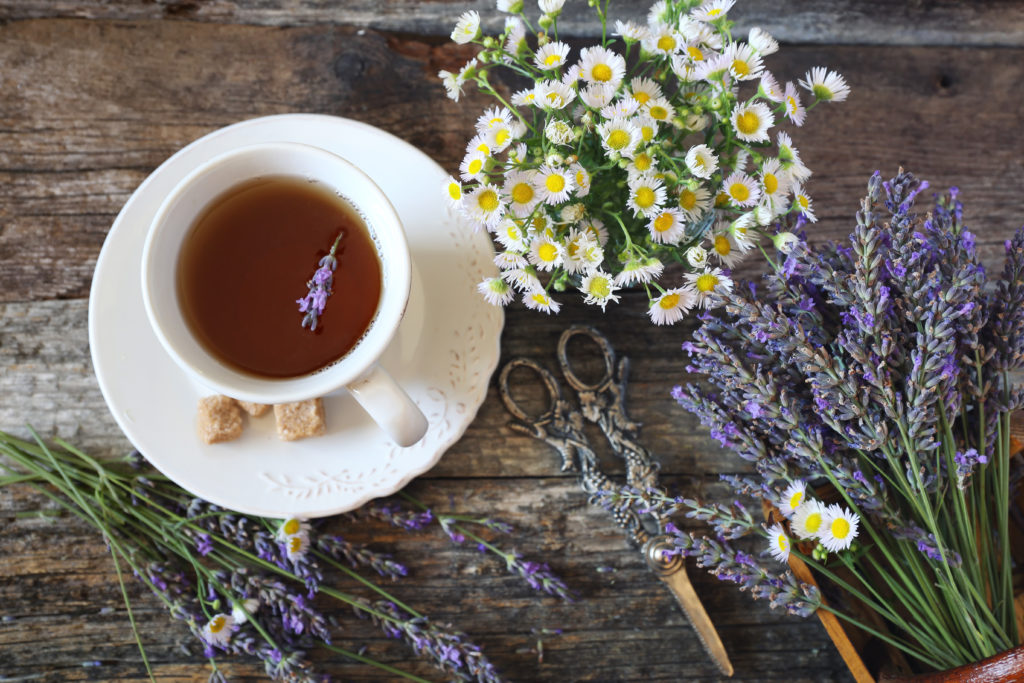No one is left untouched when it comes to depression and anxiety. Even if it hasn’t affected you personally, chances are high that it will affect someone you know. In fact, evidence suggests that nearly all of us will have an issue with depression and/or anxiety at some stage in our lives. Knowing this, what can we do to get on the road to good mental health? Starting with a holistic approach is a positive first step, and what we eat is an essential component of that. Poor diet can exacerbate mental health issues, while a healthy diet can have the opposite effect.
Nature provides us with a bounty of plants and herbs that have inherent benefits to mental health. Though medical intervention may sometimes be the best course, and only you and your doctor can make that decision, here are five natural products that can supplement your pursuit of good metal health.
#1. St. John’s Wort
A systematic review of several recent studies on St. John’s wort and depression produced some interesting results. The good news is that St. John’s wort can be almost as effective as antidepressant medications in alleviating symptoms of mild-to-moderate depression. On the flip side, it had little impact on more severe cases of depression, in some cases even neutralizing the effectiveness of antidepressants and making the symptoms worse.
“The fact is, St. John’s wort cannot be recommended as a total replacement for medical interventions at this time, and its benefits may vary depending on the individual, but there is growing evidence to suggest this natural herb has positive mental health-inducing qualities,” says health writer Joanna Hargreaves.
#2. Ginseng
Both American and Asian ginseng have been used as a natural mental health remedy for hundreds of years. For example, in alternative Chinese medicine, ginseng is a staple for mental energy and focus—but at the same time there are major caveats. (And also be careful of other ginseng varieties, whose effects may vary).
“The National Center for Complementary and Integrative Health (NCCIH), no less, has stated that there is no definitive evidence to suggest ginseng can play a role in alleviating the symptoms of depression, so here we have a classic standoff between medical and holistic approaches,” points out journalist James Ballent.
#3. Omega-3 Fatty Acids
As the name would suggest, omega-3 fatty acids are a naturally produced fat found in many varieties of fish, including salmon and sardines. Even today, when most nutritionists agree that the “all fat is bad” message is wrong, most people still run for the hills when they hear the word. But the fact is, some forms of fat are good for us—necessary, in fact. As a natural supplement, omega-3 (sometimes marketed as fish oil capsules) has been popular for a long time. Now research suggests that some people who suffer from depression have reduced levels of the chemicals DHA and EPA in the brain, which can lead to a higher risk of depressive episodes. Omega-3 fatty oils contain these naturally produced chemicals and can therefore supplement a healthy mental balance. And if you like, you can enjoy eating the natural fish source of omega-3 as well as the supplements.
#4. Chamomile
Anecdotally, chamomile (which is produced by the Matricaria recutita plant) has long been cited as a mood relaxer, but there’s also scientific research linking this herb to alleviated symptoms of depression. The results of a 2012 study reported that chamomile was more effective for than a placebo, but the science on this is still in the early stages, so undoubtedly more detailed research is required.
#5.Lavender
A popular supplement (and aroma), lavender has long been associated with relaxation. But a 2013 study details how it may also be a significant factor in alleviating anxiety levels and having a positive effect on sleep (another important factor in both depression and anxiety).
Like with all of the other naturally occurring products on this list, deeper and more meaningful research is required to fully understand the health benefits of lavender. However, the findings to date, not to mention its age-old positive links with relaxation, suggest a reason to hope that lavender may have untapped therapeutic properties.
Images from iStock/fizkes (main), photosimysia (post).



